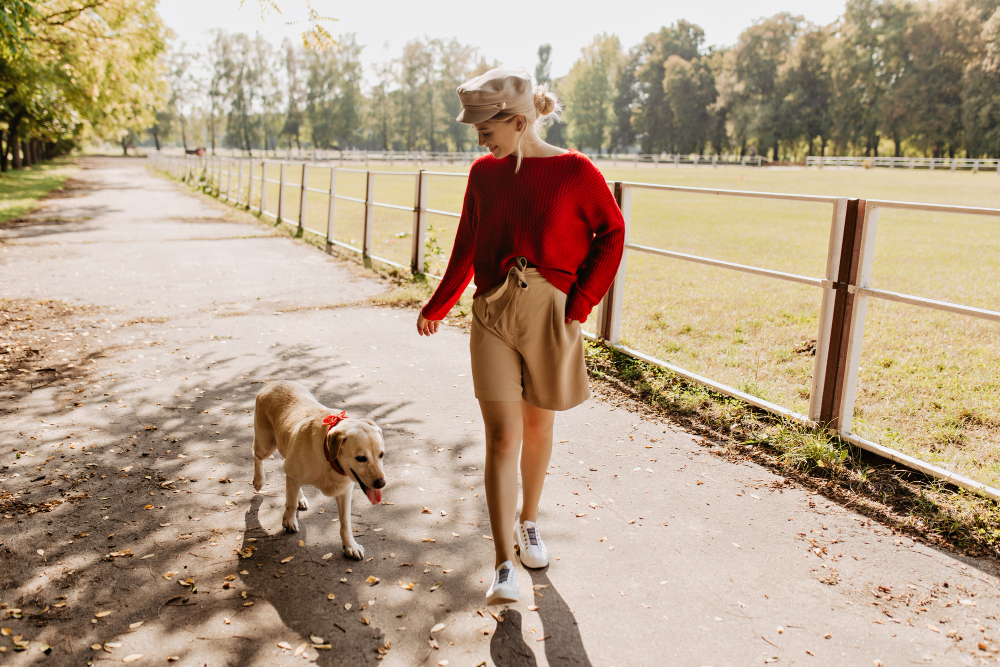Ways to Ease Your Senior Pet’s Mobility

Ways to Ease Your Senior Pet’s Mobility

Aging is inevitable, and as our beloved pets grow older, they often face mobility issues that can affect their quality of life. Helping senior pets maintain mobility not only eases their physical discomfort but also enhances their overall well-being. In this guide, we'll explore various strategies to support your senior pet's mobility, ensuring they stay comfortable and active in their golden years.
Understanding Senior Pet Mobility Issues
Before we jump into solutions, it's important to understand the common causes of mobility issues in senior pets. These include:
- Arthritis: A degenerative joint disease that causes pain and stiffness.
- Hip Dysplasia: A genetic condition affecting the hip joints, leading to discomfort and reduced mobility.
- Obesity: Excess weight puts additional stress on joints and muscles.
- Muscle Atrophy: The gradual loss of muscle mass due to inactivity or aging.
- Neurological Disorders: Conditions like degenerative myelopathy can affect nerve function and coordination.
Signs Your Senior Pet May Be Struggling with Mobility
Recognizing the signs of mobility issues early can make a significant difference in managing your pet's condition. Look out for:
- Difficulty getting up or lying down
- Reluctance to climb stairs or jump onto furniture
- Limping or favoring one leg
- Decreased activity levels
- Visible discomfort or pain when moving
Ways to Support Your Senior Pet's Mobility
1. Maintain a Healthy Weight
One of the most effective ways to support your senior pet's mobility is by maintaining a healthy weight. Obesity exacerbates joint pain and can lead to other health issues. Consult your veterinarian to determine the ideal weight for your pet and adjust their diet and exercise routine accordingly.
2. Provide Joint Supplements
Joint supplements can be beneficial in managing arthritis and other joint-related issues. Common supplements include:
- Glucosamine and Chondroitin: These help maintain joint health and reduce inflammation.
- Omega-3 Fatty Acids: Known for their anti-inflammatory properties.
- MSM (Methylsulfonylmethane): Helps reduce pain and inflammation.
3. Create a Comfortable Living Environment
Making small changes around your home can significantly improve your senior pet's comfort and mobility:
- Non-Slip Surfaces: Use rugs or mats to prevent slipping on hardwood or tile floors.
- Pet Ramps and Stairs: These can help your pet access furniture or climb stairs without strain.
- Orthopedic Beds: Provide better support for aching joints and muscles.
4. Regular Exercise
Regular, low-impact exercise is crucial for maintaining muscle mass and joint flexibility. Activities such as:
- Short Walks: Consistent, gentle walks can help keep your pet active without overexertion.
- Swimming: A great low-impact exercise that reduces stress on joints.
- Physical Therapy: Consider professional physical therapy sessions tailored to your pet's needs.
5. Pain Management
Managing pain effectively is essential for your senior pet's quality of life. Your veterinarian may recommend:
- Medications: Anti-inflammatory drugs, pain relievers, or joint injections.
- Alternative Therapies: Options like acupuncture, laser therapy, or chiropractic care.
6. Regular Veterinary Check-Ups
Regular check-ups allow your veterinarian to monitor your pet's condition and make necessary adjustments to their care plan. Early detection of mobility issues can lead to more effective management and treatment.
7. In Home Euthanasia
When mobility issues severely impact your pet's quality of life, it may be time to consider humane options like in home euthanasia. This ensures your pet can pass peacefully in the comfort of their home, surrounded by loved ones. If you're considering in home euthanasia in Jupiter, FL, contact Rover Veterinary Care today for more information.
Supporting Your Senior Pet Emotionally
Physical discomfort can lead to emotional distress in senior pets. Providing emotional support is just as important as addressing their physical needs. Here are some tips:
- Maintain a Routine: Consistent routines can provide a sense of security and predictability.
- Provide Attention and Affection: Spend quality time with your pet, offering comfort and companionship.
- Use Gentle Handling: Be gentle when lifting or moving your pet to avoid causing pain.
Creating a Senior Pet-Friendly Home
Adapting your home to your senior pet's needs can make a significant difference in their comfort and mobility. Consider the following:
- Accessible Food and Water: Ensure food and water bowls are easily accessible and at an appropriate height.
- Easy Access to Outdoors: If possible, create an easy route for your pet to access the outdoors for bathroom breaks.
- Safety Measures: Remove any obstacles or hazards that could cause trips or falls.
Conclusion
Caring for a senior pet with mobility issues requires a comprehensive approach that includes maintaining a healthy weight, providing joint supplements, creating a comfortable living environment, ensuring regular exercise, managing pain effectively, and offering emotional support. By implementing these strategies, you can significantly improve your senior pet's quality of life.
If you find that your senior pet's mobility issues are severely impacting their quality of life, it may be time to consider in home euthanasia. This compassionate option allows your pet to pass peacefully in the comfort of their own home. If you're considering in home euthanasia in Jupiter, FL, contact Rover Veterinary Care today for more information.
